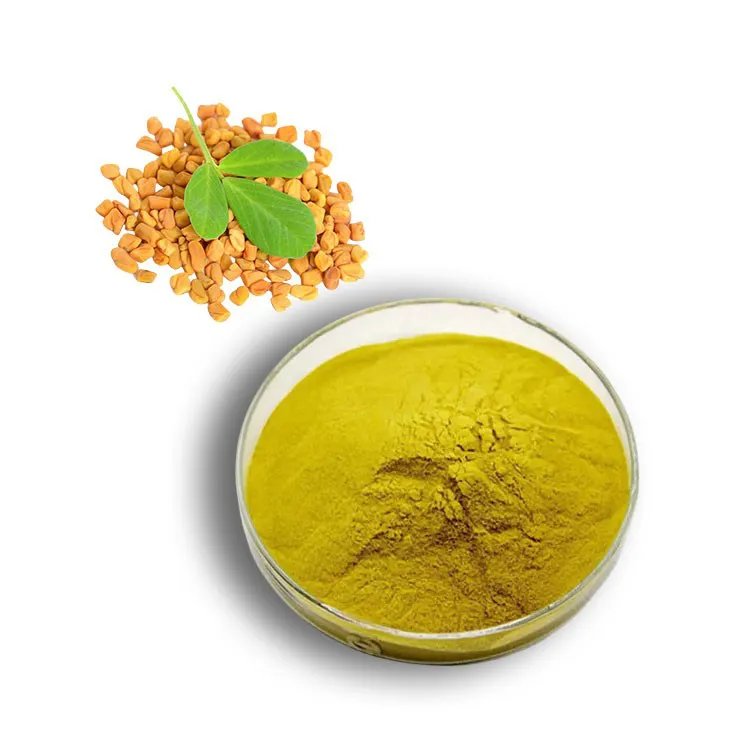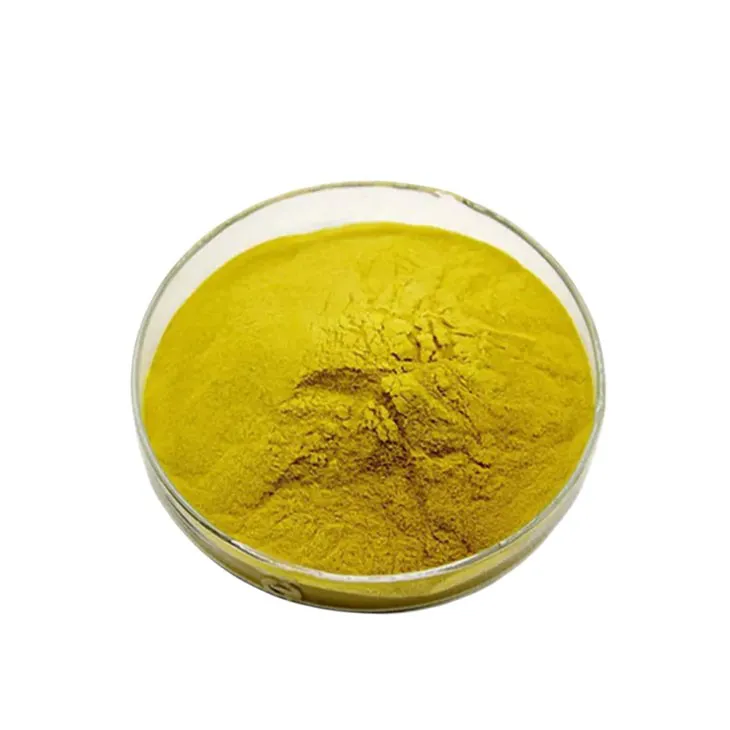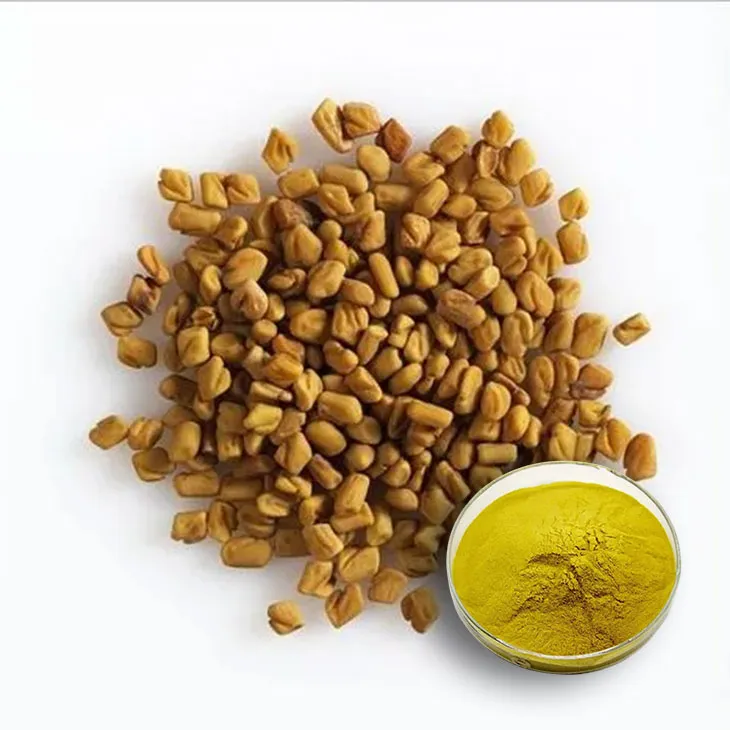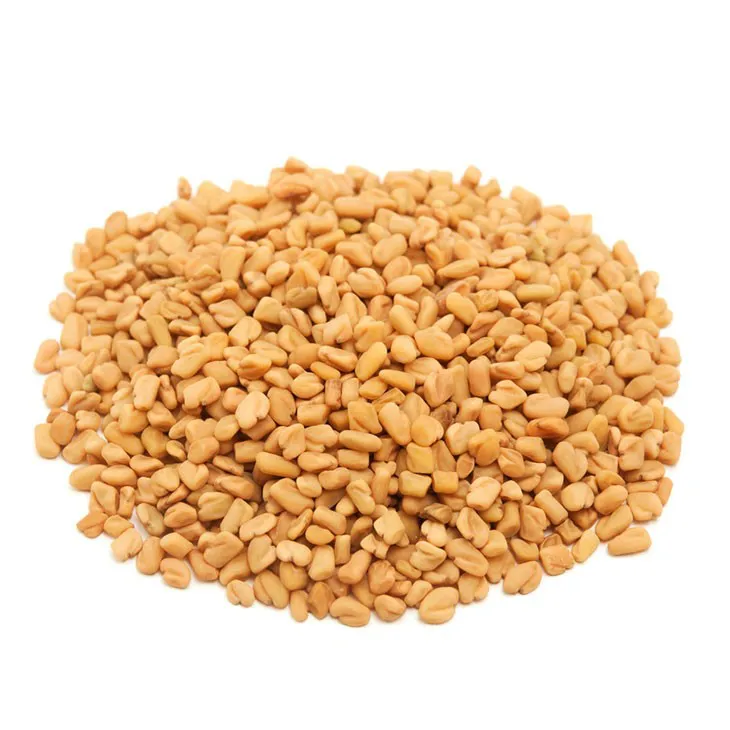- 0086-571-85302990
- sales@greenskybio.com
Optimal Bioavailability of Fenugreek Extract Powder.
2024-11-28

1. Introduction
Fenugreek (Trigonella foenum - graecum) is a well - known plant that has been used for centuries in traditional medicine systems around the world. Fenugreek Extract Powder is becoming increasingly popular due to its numerous potential health benefits, which are attributed to its rich composition of bioactive compounds. However, the bioavailability of these compounds in the Fenugreek Extract Powder is a crucial factor that determines their effectiveness in the human body. Bioavailability refers to the proportion of a drug or substance that enters the circulation when introduced into the body and is thus available at the site of action. In the case of Fenugreek Extract Powder, understanding and optimizing its bioavailability is essential for maximizing its therapeutic potential.

2. Fenugreek and Its Bioactive Compounds
Fenugreek contains a variety of bioactive compounds, including saponins, flavonoids, alkaloids, and fiber. Saponins, such as diosgenin, are one of the major components in fenugreek. They have been associated with anti - inflammatory, antioxidant, and cholesterol - lowering effects. Flavonoids in fenugreek, like Quercetin and kaempferol, also contribute to its antioxidant and anti - inflammatory properties. Alkaloids present in fenugreek may have potential effects on blood sugar regulation. The fiber content, mainly soluble fiber, can help in digestion and may also influence the absorption of other bioactive compounds.

3. Factors Affecting Bioavailability
3.1 Extraction Methods
The method used to extract fenugreek extract powder can significantly impact its bioavailability. Solvent extraction is a commonly used method. Different solvents can extract different types of bioactive compounds with varying degrees of efficiency. For example, ethanol - based extraction may be more effective in extracting saponins compared to water - based extraction. However, the choice of solvent also needs to consider factors such as safety and cost. Supercritical fluid extraction, using substances like carbon dioxide in a supercritical state, is another emerging extraction method. It has the advantage of being able to extract bioactive compounds without leaving behind harmful residues and can potentially improve the bioavailability of the extract by preserving the integrity of the compounds.
3.2 Formulation
- The formulation of fenugreek extract powder can also play a crucial role in its bioavailability. Encapsulation is a popular technique used in formulating fenugreek extracts. Encapsulating the extract can protect it from degradation in the gastrointestinal tract. For example, encapsulating fenugreek extract in lipid - based capsules can enhance the absorption of lipophilic bioactive compounds. This is because the lipid environment in the capsule can help in solubilizing these compounds, making them more available for absorption.
- Another aspect of formulation is the addition of excipients. Excipients can be used to improve the physical properties of the powder, such as its flowability and solubility. For instance, adding a suitable surfactant can increase the solubility of fenugreek extract powder in aqueous media, which in turn can enhance its bioavailability. However, the choice of excipients needs to be carefully considered to avoid any potential interactions that could reduce the bioavailability.
3.3 Delivery Systems
- Delivery systems for fenugreek extract powder can be designed to target specific sites in the body for improved bioavailability. Nanoparticle - based delivery systems are an area of active research. Nanoparticles can be engineered to encapsulate fenugreek extract and can be targeted to specific cells or tissues. For example, nanoparticles can be surface - modified to be recognized by receptors on certain cells, allowing for more efficient uptake of the extract. This targeted delivery can increase the concentration of the bioactive compounds at the site of action, thereby enhancing their effectiveness.
- Another delivery system is the use of mucoadhesive polymers. These polymers can adhere to the mucosal surfaces in the gastrointestinal tract, prolonging the contact time of the fenugreek extract powder with the absorptive surfaces. This increased contact time can lead to better absorption of the bioactive compounds. Mucoadhesive polymers can also protect the extract from being quickly washed away by the gastrointestinal fluids, improving its bioavailability.

4. Interaction with Physiological Conditions
4.1 Gastrointestinal Tract
The gastrointestinal (GI) tract plays a vital role in the absorption of fenugreek extract powder. The pH levels in different parts of the GI tract can affect the solubility and stability of the bioactive compounds. For example, in the stomach, which has a low pH, some compounds may be protonated, changing their solubility characteristics. In the small intestine, which has a relatively neutral pH, the absorption of most bioactive compounds occurs. The presence of digestive enzymes in the GI tract can also break down the fenugreek extract into smaller components, which may or may not be more easily absorbed. For instance, certain enzymes may hydrolyze saponins, potentially altering their bioactivity and bioavailability.
4.2 Metabolism
Once absorbed, the bioactive compounds in fenugreek extract powder are metabolized in the body. The liver is a major site of metabolism. Cytochrome P450 enzymes in the liver can modify the structure of these compounds. Some of these modifications may enhance the bioactivity of the compounds, while others may lead to their inactivation. Additionally, the gut microbiota also plays a role in the metabolism of fenugreek compounds. The gut microbiota can break down certain compounds, producing metabolites that may have different bioactivities compared to the parent compounds. For example, some bacteria in the gut can convert saponins into more bioactive forms, which can then be absorbed and exert their beneficial effects.

5. Strategies for Optimizing Bioavailability
- Combination with other substances: Combining fenugreek extract powder with other substances can enhance its bioavailability. For example, pairing it with certain vitamins or minerals may improve the absorption of its bioactive compounds. Some vitamins can act as co - factors in the metabolic processes related to the bioactive compounds, facilitating their utilization in the body.
- Dosing regimen: The dosing regimen of fenugreek extract powder is also important for optimizing bioavailability. Spacing out the doses evenly throughout the day can ensure a continuous supply of the bioactive compounds in the body. This can prevent the saturation of absorption mechanisms and allow for more efficient uptake. Additionally, starting with a lower dose and gradually increasing it may also be beneficial, as it can give the body time to adapt to the extract and potentially improve its absorption.
- Patient - specific factors: Considering patient - specific factors is crucial for optimizing bioavailability. Factors such as age, gender, and underlying health conditions can influence how the body absorbs and utilizes fenugreek extract powder. For example, older patients may have reduced digestive function, which could affect the absorption of the extract. In such cases, appropriate adjustments to the formulation or dosing regimen may be necessary.
6. Conclusion
In conclusion, the optimal bioavailability of fenugreek extract powder is a complex issue that is influenced by multiple factors. The extraction method, formulation, delivery system, and interaction with physiological conditions all play important roles. By understanding these factors and implementing appropriate strategies, it is possible to enhance the bioavailability of fenugreek extract powder, thereby maximizing its potential health benefits. Further research is still needed to fully elucidate the mechanisms underlying bioavailability and to develop more effective ways to optimize it for different applications in the field of medicine and nutrition.
FAQ:
What are the main extraction methods for fenugreek extract powder?
Common extraction methods for fenugreek extract powder include solvent extraction, for example, using ethanol or water as solvents. Supercritical fluid extraction is also an option, which can provide a more pure extract. Another method is microwave - assisted extraction, which can shorten the extraction time and potentially preserve more active components.
How can the formulation affect the bioavailability of fenugreek extract powder?
The formulation of fenugreek extract powder can significantly impact its bioavailability. For instance, if it is formulated into nanoparticles, it may increase the surface area available for absorption, enhancing bioavailability. Combining it with certain carriers or excipients that can protect the active ingredients during digestion and improve their solubility can also boost bioavailability.
What delivery systems are suitable for improving the bioavailability of fenugreek extract powder?
Liposomal delivery systems can be suitable for fenugreek extract powder. Liposomes can encapsulate the extract, protecting it from degradation in the gastrointestinal tract and facilitating its uptake by cells. Another option is the use of microemulsions, which can enhance the solubility and dispersibility of the extract, leading to improved bioavailability.
How do different physiological conditions in the human body influence the absorption of fenugreek extract powder?
The pH levels in the digestive tract play a role. For example, in the stomach's acidic environment, some components of the fenugreek extract may be more stable or less stable, affecting their subsequent absorption in the intestine. Also, the presence of certain enzymes in the body can either help break down the extract into more absorbable forms or, in some cases, cause degradation. Additionally, the health of the intestinal lining, such as in cases of intestinal diseases, can impact the absorption of the fenugreek extract powder.
What are the active components in fenugreek extract powder related to its bioavailability?
Fenugreek contains components such as saponins, flavonoids, and alkaloids. Saponins can have surfactant - like properties that may enhance the absorption of other components. Flavonoids can potentially influence cellular uptake mechanisms, and alkaloids may interact with receptors in the body, all of which can be related to the bioavailability of the fenugreek extract powder.
Related literature
- Bioavailability Enhancement of Phytochemicals: Technological and Therapeutic Aspects"
- "The Role of Extraction Techniques in Obtaining Bioactive Compounds from Fenugreek"
- "Formulation Strategies for Improving the Bioavailability of Herbal Extracts"
- ▶ Hesperidin
- ▶ Citrus Bioflavonoids
- ▶ Plant Extract
- ▶ lycopene
- ▶ Diosmin
- ▶ Grape seed extract
- ▶ Sea buckthorn Juice Powder
- ▶ Fruit Juice Powder
- ▶ Hops Extract
- ▶ Artichoke Extract
- ▶ Mushroom extract
- ▶ Astaxanthin
- ▶ Green Tea Extract
- ▶ Curcumin
- ▶ Horse Chestnut Extract
- ▶ Other Product
- ▶ Boswellia Serrata Extract
- ▶ Resveratrol
- ▶ Marigold Extract
- ▶ Grape Leaf Extract
- ▶ New Product
- ▶ Aminolevulinic acid
- ▶ Cranberry Extract
- ▶ Red Yeast Rice
- ▶ Red Wine Extract
-
Berberis aristata Extract
2024-11-28
-
Grape Leaf Extract
2024-11-28
-
Shikone Extract
2024-11-28
-
Chia Seed Powder
2024-11-28
-
Oat Straw Extract Powder
2024-11-28
-
Motherwort Extract
2024-11-28
-
Yellow Pine Extract
2024-11-28
-
Epimedium extract powder
2024-11-28
-
Cat Claw Extract
2024-11-28
-
Dan Shen Root Extract/Salvia Root Extract
2024-11-28





















